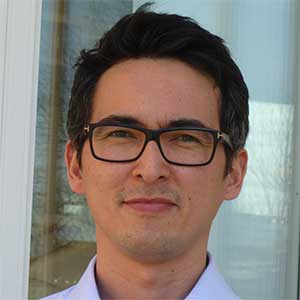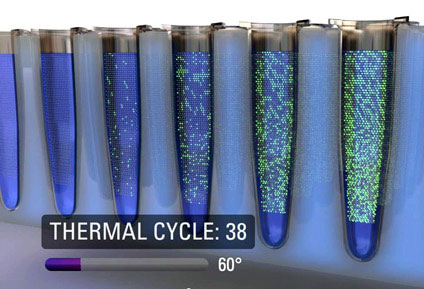Speaker Profile
M.D., Ph.D., Assistant Professor, Lund University, Sweden; CEO, SAGA Diagnostics AB
Biography
Dr. Lao Saal is Assistant Professor and Head of Translational Oncogenomics at the Division of Oncology and Pathology, Lund University. His academic research group focuses on cancer molecular profiling, PTEN/PI3K signaling, and “liquid biopsy” analyses. He is co-PI of the SCAN-B Initiative, the largest breast cancer genomics in Sweden with over 9000 patients enrolled to date (NCT02306096). In addition, as CEO of SAGA Diagnostics, Dr. Saal is applying innovative technologies for ultrasensitive quantification of circulating tumor DNA for companion diagnostics and monitoring of cancer patients. He received his MD and PhD degrees from Columbia University in New York in the laboratory of Ramon Parsons, and also trained with Jeffrey Trent, Paul Meltzer, and Javed Khan at the NHGRI/NIH, and with Yuman Fong at Memorial Sloan-Kettering Cancer Center. He has received several awards including the Swedish Cancer Society Young Investigator Award.
Talk
Tumor Heterogeneity and Circulating Tumor DNA Cancer Monitoring
Intratumoral heterogeneity complicates companion diagnostics and cancer monitoring by ctDNA liquid biopsies. The utility of measuring chromosomal rearrangements for detection of occult metastasis will be presented, as well the clinical potential of ultrasensitive and ultraspecific methods for quantification of druggable/actionable gene mutations.
Session Abstract – PMWC 2017 Silicon Valley
Session Synopsis: The richness of physiological information in cell-free DNA & RNA is being mined for early detection and treatment in cancer, transplant health, Type I diabetes and other disease states. Depending on the number of biomarkers being usefully interrogated, either broad profiling by Next Generation Sequencing or focused quantitative measurements by digital PCR may be best suited for clinical decision-making. The high sensitivity, specificity and reproducibility of droplet digital PCR technology, as well as its rapid turnaround time and affordability, have led to its explosive uptake in clinical investigations, especially for cancer. Increasingly, translational researchers and clinicians are moving back and forth between the two technology approaches at different stages of disease. Speakers in this session will illustrate how and why they have chosen the technical approach used in their studies and/or for ongoing patient care, including factors such as type and stage of cancer, urgency of the information, what is already known and what can be usefully learned about the particular patient’s disease.




